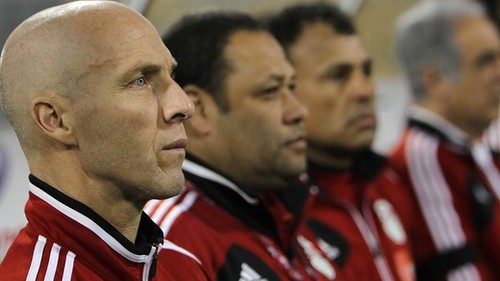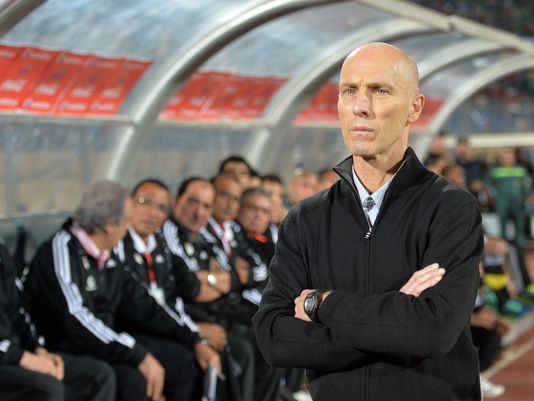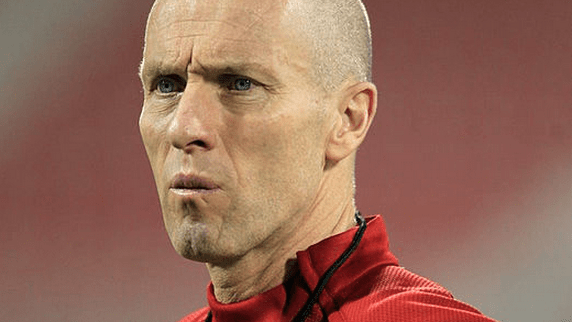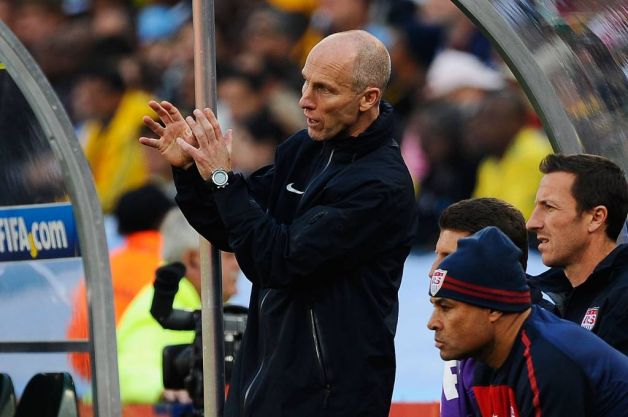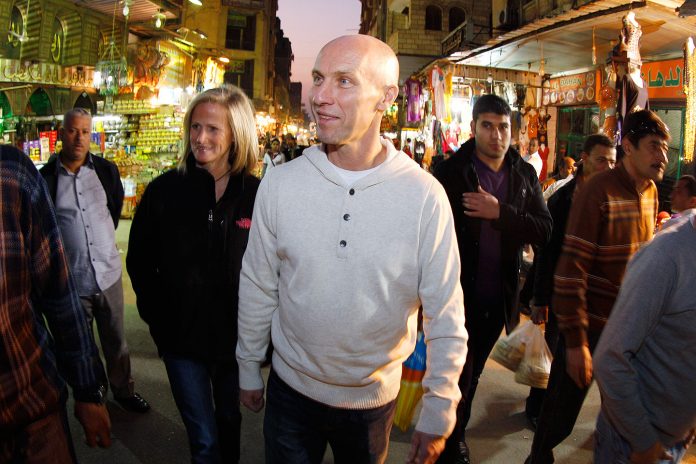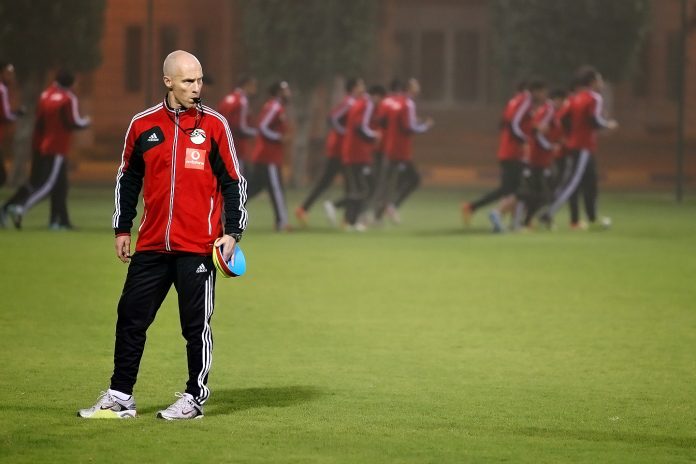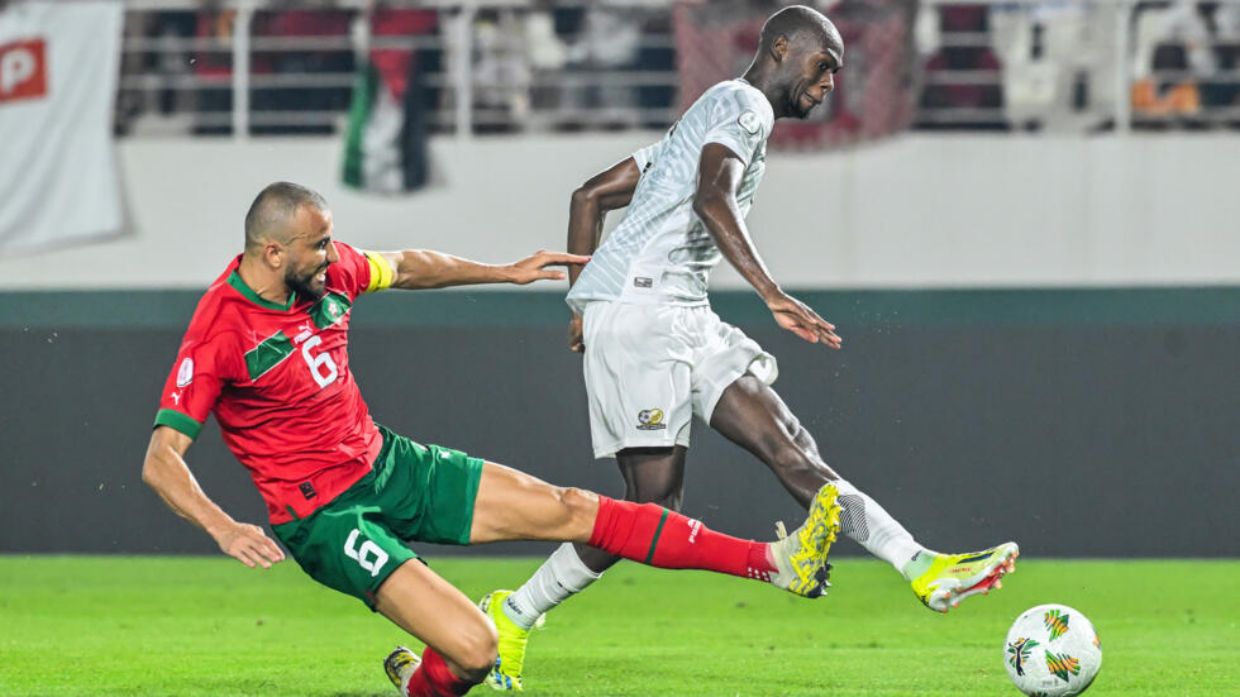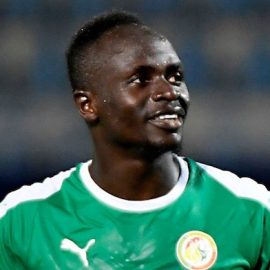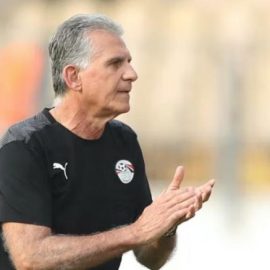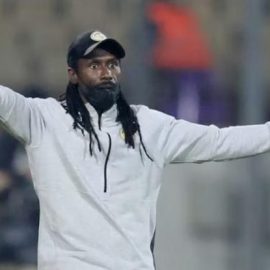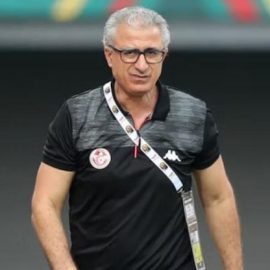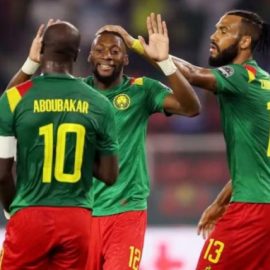There was no fairytale ending to this story, because this story was no fairytale. This story, one of the most amazing in sports and life we have ever seen, was about preservation, fear, family, work, and just a little bit of soccer.
Egypt beat Ghana 2-1 in Cairo on Tuesday, but that victory was nowhere near large enough to overturn a 6-1 deficit that the Egyptians took into the second leg of their FIFA World Cup Playoff.
It’s over for Egypt, and their American coach Bob Bradley. Despite winning seven of their eight qualifiers in a country ripped apart by revolution and war, the Pharaohs will not be in Brazil for the 2014 World Cup.
The tunnel of Egyptian Football had only one road, lit by one light. That road and that light led to Brazil. Tuesday, that fading light was extinguished, and that road plunged into darkness.
Bradley, a middle-aged man from New Jersey, will leave. The coach was skewered by the unforgiving Egyptian press after that nightmare in Ghana, despite all the magic dust he manufactured and uncorked in his three years in Africa. They said he picked the wrong team, and left the Egyptian defense out to dry. They even falsely reported he’d been fired.
And as the chairman of the Egyptian Football Association stated after the aggregate loss to Ghana was made official, “We signed Bradley to take the team to the World Cup but he failed so we will search for new coach and we wish him good luck.”
See you, Bob. It’s over.
This isn’t a fairytale, remember?
In the weeks in between the disastrous first leg in October, and the academic second leg in November, Bradley remained stoic. A few years ago, if there was one thing this New Jerseyan was, he was stoic. Bradley owned that 3,000-mile stare, those fierce blue eyes belied by a World Series of Poker face.
But in the last few years in Egypt, Bradley undertook a job and a life that didn’t allow an emotionless face.
In Egypt, Bradley changed. It seems obvious, but if there was one man in football management that you’d never expect to see smiling, making impassioned speeches, and becoming a public star with a very public image, it was Bob Bradley.
Bradley’s journey was one that defied description. It defied that moniker of fairytale that engulfs so many of the truly great sports stories. It defied that moniker, because Bradley “failed”, even though the American Pharaoh succeeded long ago.
–
Bradley’s journey started on June 21st, 2009 at the Royal Bafokeng Stadium in Rustenburg, South Africa. The United States had been shellacked by Brazil and Italy in their first two games of the Confederations Cup, and needed a miracle to advance going into the final day: The US needed to beat Egypt 3-0, and see Brazil beat Italy 3-0 to move on.
On the other hand, the Egyptians, under legendary coach Hassan Shehata, were having a very useful tournament. After controversially falling 4-3 to Brazil in their first game, Egypt beat Italy 1-0 in their next game and only needed a point to go through.
The Americans dominated. With the kind of gumption, gut, and never-say-die attitude that came to define Bradley’s USA, it was 3-0 after a 71st minute goal from Clint Dempsey. That, coupled with Brazil’s 3-0 victory over Italy improbably sent the US through.
Just a few days later, it was USA 2, Spain 0, and by the time the US went up 2-0 in the final over Brazil, Egypt were more than impressed by Bradley.
That victory in the Royal Bafokeng Stadium made a mighty impression (and Egypt also liked that Bradley worked with an Egyptian goalkeeping coach), but both coach and country were happy and entrenched with their current situations, and both went on their marry way.
Bradley guided the US into the World Cup in South Africa, while Egypt fell painfully short in a one game playoff against hated rival Algeria.
At the World Cup, Landon Donovan’s stoppage time goal beat Algeria to send the USA through. In the knockout round, however, the US met their end against Ghana in the very same Royal Bafokeng Stadium.
Despite captivating a nation and having the most entertaining tournament of any team in South Africa, Bradley’s status after the World Cup hung in limbo for over a month, while Sunil Gulati tried and failed to sign Jurgen Klinsmann.
It was the same ordeal Bradley sat through three years before, when he was the interim coach replacing Bruce Arena, and despite good results, Gulati tried and failed to sign Klinsmann, who had recently departed from the German national team.
After failing to land his man again, Bradley was re-upped through the 2014 World Cup. But as he well knew, he remained US Soccer’s second-choice, a tag Bradley didn’t like nor deserve. Quietly confident and disrespected, Bradley through his name in the hat for the Aston Villa job, and made clear his interest in opportunities around the world.
Neither US Soccer nor Bradley was completely happy, and so after the US lost to Mexico in the Gold Cup Final in 2011 at the Rose Bowl, Bradley was sacked.
The next day, Klinsmann, who the US never really stopped negotiating with, was officially unveiled.
Around the same time, Egypt were going through turmoil of their own. Three times in a row, Hassan Shehata and had won the African Cup of Nations for his country. But Egypt didn’t even qualify for the 2012 tournament, and citing differences with the Egyptian FA, Shehata resigned.
When Egypt came calling, Bradley made it clear he wanted the job – and he beat his competitors to it.
It was a remarkable move: Besides becoming the first American coach to coach another national team outside CONCACAF region, Bob Bradley was going to Egypt – he was going to be an American in the Middle East, an American who didn’t speak a lick of Arabic, and an American who was instantly conspicuous and doubted by a demanding footballing public.
This much was clear: Bradley was not going into a retirement job. He wasn’t headed for a payday in a country run by oil tycoons where the workload and interest in soccer was light. He was headed for a difficult job.
And it was, of course, about to get a lot harder.
–
In January 2011, the Egyptian public rose up and ousted President Honsi Mubarak with mass protests, sparking what we now call the Arab Spring.
But Egypt’s revolution was just beginning. After Mubarak was ousted, the protests did not stop, with the military council in power incurring anger. The country all but stopped as people were divided along religious and political lines, with power wielded by the Muslim Brotherhood and military regime dividing a nation already deeply fractured and wounded.
That’s what Bradley stepped into. Four months and one game after he started his job, things would become worse.
In one of the most horrifying sporting tragedies ever, a riot erupted in an Egyptian league match between Al Ahly, Egypt’s leading club, and Al-Masry.
After Al-Masry’s famous victory over Al Ahly, fans invaded the pitch. But instead of the expected celebrations, they savagely attacked. Live on state TV, the Al Ahly players ran for their lives.
The Al-Masry fans used knives, swords, and bottles. They threw Al Ahly fans off of stadium railings. Other fans were stampeded. Others were brutally beaten to death, cut, kicked and punched.
The Al Ahly players fled into the locker room. Someone turned out the lights in the stadium. Someone locked the gates. There were more casualties in the resulting panic and rush to exit the stadium.
All the while, the police stood by and did nothing. It was gut wrenching. As people were cut down, bled to death, and massacred, the police did not act.
Over 1,000 people were injured. 74 died, including some people in Al Ahly’s dressing room. One player died in the arms of Egypt’s star and answer to Zinedine Zidane, Mohamed Aboutrika.
Immediately, there were questions. Why the inaction from the police? One picture showed a policeman smiling through the bloodbath, and it wouldn’t have been hard to imagine the fangs coming out of his mouth.
The Al Ahly ultras were very political, and involved in the Arab Spring uprisings. Was this the military’s revenge?
On the same day in Cairo, where Bradley moved with his wife Lindsay, a match was cancelled at halftime after a fire was lit in the stadium.
Of course, it was have been natural to see the Bradleys flying back to shelter and safety on the next plane out of Cairo.
It would have been less natural, but still somewhat believable if Bradley stayed hidden in the shadows, out of sight and mind.
Instead, Bradley marched with the Al Ahly supporters through the streets of Cairo the next day, and appeared on TV risking the wrath of the government by using the word massacre to describe the tragedy. Bradley inspired many in Egypt, and in the US as well.
Massacre, of course, is a loaded word, and the Egyptian FA called a press conference for Bradley to back off any open admonishment of the existing government. He did, but he has never backed off describing what happened as a massacre.
And just like that, Bradley became an Egyptian leader. He won instant respect with a people by staying with them while they were trapped. His down-to-earth class and humanity shone as the reservations of the Egyptian public were washed away.
That’s where the bond started. The bond between Bradley, his players, and his new country.
The Egyptian league was shut down. It still hasn’t reopened. Players quit the national team en masse, and many had to find new jobs to support themselves. There were religious divides within the team, just as there were within the country.
The revolution continued. The violence and mistrust only increased. It was a real-life version of Argo.
And it was up to a Springsteen fan from Essex Falls to qualify Egypt for the World Cup Finals for the first time since 1990.
In America, Bradley was a solid background as a coach. He set up the walls, and let his team play within them. Never a star himself, Bradley’s stoicism and impenetrability became his defining attributes. What is he thinking? How does he really feel?
While comfortable in his own skin, you could never really tell if Bradley liked it very much. Now, he had to be brave. He and his wife Lindsay, living in the center of the revolution, had to come out of their skin.
Bradley was so far from home, he had to make a new home.
On the field, Bradley had to play World Cup qualifiers in empty stadiums, and cross the language barrier to communicate with his players.
He ran training camps in-between international breaks – to keep his team sharp, or just to keep them playing soccer.
Bradley connected with his players – especially the aging magician Aboutrika, who put his reputation and past glories aside and said, whatever you need to do, coach, I want to get to the World Cup. They all bonded over the pain of Port Said, and raw emotional experience they all went through as the fabric of their country was ripped to shreds.
It was the only light on that dark road. The World Cup. After all, it was the only football in Egypt. A pipedream served on pipeline.
And then, Egypt couldn’t lose.
The Pharaohs gunned through their African qualifying group. They won 2-0. 3-2. 2-1. 4-2. 1-0. 4-2 again. They won their group with a game to spare.
The Egyptians have always had plenty of talent. They are Africa’s most successful team in the Nations Cup. But like neighbors Algeria, Egypt have been plagued with attitude problems and outsize personalities failing to live up to expectations.
Even during the good times, trouble has reigned: During the 2008 Cup of Nations win, for instance, the coach and star player Mido had a furious row after the forward was substituted in the semifinal.
Bradley was the perfect coach to put things together. Team first has always been Bradley’s method, and so when star goalkeeper El Hadary tried to upstage Bradley by retiring from the national team at halftime of a game he had been dropped for, thinking Bradley would have to recall him, the coach let him go without a word.
The Egyptian players liked Bradley’s honesty and accountability. And it turns out that Jersey humor translates continents too.
Aboutrika’s revival was huge. A man Bradley has called his “blood brother”, the midfielder was crucial in qualifying on the field, but off the field his mind (he has a degree in philosophy) was huge as well.
As the wins and belief started piling up, Bradley was accosted with chants of “World Cup! World Cup!” wherever he went in public.
And Bradley was in public a lot, with his wife. They went to the public market, and public restaurants and connected with the people who he found gave incredible hospitality. He gave them hope.
Bradley visited hospitals and talked to schoolchildren. He appeared on television and spoke up for what he believed was right.
The good vibes outweighed the bad.
The Egyptian FA’s offices were burned down by Al Ahly fans after seven of the nine police officers on duty at Port Said were acquitted of any crime. In August, the new President Mohamed Morsi was ousted from office as well.
Bombs went off in the streets Bradley walked on. He just kept on walking – even when the American government ordered all US citizens in Egypt to evacuate.
He smiled a lot, Bradley did. And on a rare, rare visit to the States in the summer, he talked of the resiliency of the Egyptian people.
He talked of the dream of the World Cup, and of the wonder of soccer – that one universal religion that we all partake in. The dream united Egypt.
Bradley could not possibly be in the shadows. After that evacuation, there were virtually no Americans in Egypt. And with a pale, chiseled bald head, there was no mistaking Bradley wherever he went.
Bradley was a face of hope in Egypt. He was a rock-star. He was the man people turned to for a lift, the man that elicited squeals from other grown men in the streets.
To think a man who was always considered one of the most professional in the business grew up in Egypt seems ludicrous.
But what Bob Bradley did in becoming an American Pharaoh was of course so much more than he could have done with the US national team. He hit that sweet-spot where sports transcends itself, and stops being about sports.
Bradley. Bob Bradley. The stoic man, the man of few words.
He is the polar opposite of the man the United States hired to replace him, Jurgen Klinsmann, who an infectious personality comes easily too.
Bradley has always been most comfortable working from behind the scenes. But in Egypt, the situation demanded much more than that. It demanded Bradley come out from behind the curtain. Sure enough, Bradley met the challenge.
–
In any other year, Egypt – the only team to win every qualification game in the world – would have been in the World Cup. But in Africa, a region which has a qualifying system based on luck and not skill, the ten group winners play each other in a two-legged playoff, Egypt weren’t clear yet.
And thanks to the eminently flawed FIFA World Rankings, Egypt were seeded in the pot of the five worst teams, lined up to play the five best.
Egypt would either meet the Ivory Coast, Nigeria, Algeria, Cameroon or Ghana for a place in Brazil.
Ghana was the strongest team in the pot. They were also the team Bradley lost to in the most important game of his career, that Round of 16 game with the USA in 2010. It was a game that Bradley has played over in his mind countless times.
Ghana’s physical power and technical ability would likely be a step too far for the Pharaohs. Bradley desperately wanted to avoid them.
So of course, Ghana is the team Egypt drew. When Ghana’s name was shown in the building where the draw took place, there were oohs and ahs from the crowd.
This is no fairytale, remember? The stars aligned against Bob Bradley in Egypt in every possible way.
Suddenly, the dream became much harder to obtain.
–
In Kumasi, Ghana, Egypt played the first leg in October.
It all went horribly, horribly wrong.
Egypt were down 1-0 inside five minutes. It was 2-0 inside 15. And just a few minutes after an Aboutrika pulled it back to 2-1, Ghana scored a gut-punch goal to make it 3-1 just before halftime.
The Egypt players looked like deer in the headlights, undone by the stage. They were nervous and outmatched. For Ghana, Africa’s best team at the last two World Cups, the floodgates were open, and the flood started.
The game finished 6-1.
Ever since the final whistle that day, Bradley has been a dead man walking down those Cairo streets, counting down the days before he leaves his newfound home.
As it happens in any soccer-mad nation after an important defeat – and despite everything, Bradley kept Egypt a soccer-made nation – fingers were pointed at the coach.
When a dream dies, it dies hard. Bradley was saved from being fired by the expensive buyout clause in his contract, and down 6-1, it was over.
But Bradley grew even more in the days leading up to the second leg. He talked about his pride in his players and how he would stand with his team this last time, no matter what.
He gave an impassioned pregame press conference and speech.
He did all the things the pre-Egypt Bob Bradley never would have or could have.
The final game of Bradley’s Egypt career brought small moral victories. First, the game was played in front of a packed stadium in Cairo, the first time the national team had played in front of home support since Port Said, and things went smoothly.
Also, Egypt won – and for a short while – a dominating opening half hour when the home team scored the first goal – the dream flickered. But by the time Egypt doubled their lead, the game was almost over, and the flickering dream gave out with absoluteness. Egypt did win, though, 2-1.
After the game, however, there were stark reminders of where Bradley was. The post-match press conference was canceled, and minutes later, the official word came that the American Pharaoh’s contract would not be renewed.
No fairytale ending. Egypt and Bradley will not be at the World Cup in Brazil, and Egypt will have to wait until 2018 for another crack at the sporting prize they desire most.
Bradley and Aboutrika and other key veteran players will not be on that journey, and it would be shocking if it had as much karmic value as the one just completed.
–
Sometimes, the man makes the stage. More often, the stage makes the man.
Bob Bradley had to be a man of great character to do what he was doing. He left his home and his children and grandchildren and everything he knew to walk into a warzone and try to lead Egypt to the World Cup. Bob Bradley was great.
He stayed through the Port Said tragedy, and the revolutions and counter-revolutions and bombs and gunfire and poverty (a quick look at Egypt’s jerseys shows them to be years outdated, with the number font on the shirts and shorts not always matching), because a man stands up.
Egypt needed a hero. But who knew it would be an American hero?
Yes the dream fell short, and yes, Bradley is gone, destination unknown. Bradley thought he could do it, he thought he could deliver the dream, and he apologized to the nation of Egypt with his last act as coach. This is a man who still believes in his coaching ability and talent, and a man who knows he fell just short.
Bradley still wants to be the first American coach to crack a top European league. He still wants to go back to the World Cup. But he also knows that there will be nothing he does in his career better than what he did in Egypt.
So he failed. So what? A soccer coach from New Jersey – if only for a few blissful moments – lifted a country onto his shoulders and made them believe.
This was a time for American heroes. And Robert Bradley reached for the stars.
Add Sportslens to your Google News Feed!
